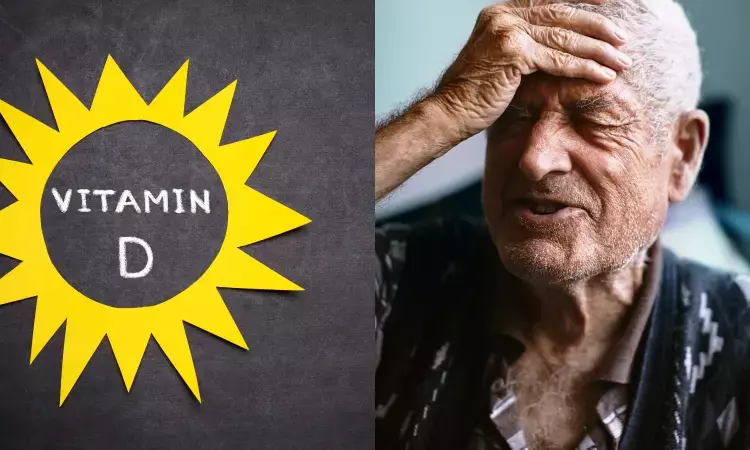- Home
- Medical news & Guidelines
- Anesthesiology
- Cardiology and CTVS
- Critical Care
- Dentistry
- Dermatology
- Diabetes and Endocrinology
- ENT
- Gastroenterology
- Medicine
- Nephrology
- Neurology
- Obstretics-Gynaecology
- Oncology
- Ophthalmology
- Orthopaedics
- Pediatrics-Neonatology
- Psychiatry
- Pulmonology
- Radiology
- Surgery
- Urology
- Laboratory Medicine
- Diet
- Nursing
- Paramedical
- Physiotherapy
- Health news
- Fact Check
- Bone Health Fact Check
- Brain Health Fact Check
- Cancer Related Fact Check
- Child Care Fact Check
- Dental and oral health fact check
- Diabetes and metabolic health fact check
- Diet and Nutrition Fact Check
- Eye and ENT Care Fact Check
- Fitness fact check
- Gut health fact check
- Heart health fact check
- Kidney health fact check
- Medical education fact check
- Men's health fact check
- Respiratory fact check
- Skin and hair care fact check
- Vaccine and Immunization fact check
- Women's health fact check
- AYUSH
- State News
- Andaman and Nicobar Islands
- Andhra Pradesh
- Arunachal Pradesh
- Assam
- Bihar
- Chandigarh
- Chattisgarh
- Dadra and Nagar Haveli
- Daman and Diu
- Delhi
- Goa
- Gujarat
- Haryana
- Himachal Pradesh
- Jammu & Kashmir
- Jharkhand
- Karnataka
- Kerala
- Ladakh
- Lakshadweep
- Madhya Pradesh
- Maharashtra
- Manipur
- Meghalaya
- Mizoram
- Nagaland
- Odisha
- Puducherry
- Punjab
- Rajasthan
- Sikkim
- Tamil Nadu
- Telangana
- Tripura
- Uttar Pradesh
- Uttrakhand
- West Bengal
- Medical Education
- Industry
Vitamin D supplementation may lower dementia incidence by 40 %.

Canada: Researchers from the University of Calgary, Canada, in their research article, have concluded that the incidence of dementia is lowered by 40 % due to Vitamin D supplementation. The effects are more pronounced in females and apolipoprotein E ε4 non-carriers, as shown in the prospective data.
The findings are published in Alzheimer's and Dementia: Diagnosis, Assessment and Disease Monitoring.
There is a relationship between Vitamin D deficiency and dementia, but the data regarding the role of vitamin D supplementation is scarce.
Researchers explored the associations between vitamin D supplementation and incident dementia in 12,388 dementia-free persons (National Alzheimer's Coordinating Center).
The study summary includes the following:
- There were D+ and D- groups.
- In the D+ group, there was exposure to vitamin D and included 4637 participants aged 71 years, constituting 70.5 % females. The participants of this group were more educated.
- In D- group, there was no exposure or supplementation before the onset of dementia, with 7751 participants and 46.9 % females.
- Vitamin D exposure was related to more prolonged dementia-free survival.
- Exposure to vitamin D was associated with a lower incidence of dementia when compared to without exposure, with a hazard ratio of 0.60
- Vitamin D supplementation was associated with 40% lower dementia incidence versus no exposure.
They concluded, "Vitamin D exposure was associated with lower dementia incidence across all strata of sex, cognitive diagnosis, and APOE ε4 status; the rates were lower in females versus males, NC (normal cognition) versus MCI ( mild cognitive impairment), and APOE ε4 non-carriers versus carriers."
They added that, Alternatively, APOE ε4 is the most substantial genetic risk factor for Alzheimer's disease (AD) and vitamin D supplementation cannot overcome the risk.
Vitamin D can prevent dementia and be used as additional support for those at risk. Future studies are required for more investigations related to this.
Further reading:
Vitamin D supplementation and incident dementia: Effects of sex, APOE, and baseline cognitive status. https://alz-journals.onlinelibrary.wiley.com/doi/10.1002/dad2.12404
BDS, MDS in Periodontics and Implantology
Dr. Aditi Yadav is a BDS, MDS in Periodontics and Implantology. She has a clinical experience of 5 years as a laser dental surgeon. She also has a Diploma in clinical research and pharmacovigilance and is a Certified data scientist. She is currently working as a content developer in e-health services. Dr. Yadav has a keen interest in Medical Journalism and is actively involved in Medical Research writing.
Dr Kamal Kant Kohli-MBBS, DTCD- a chest specialist with more than 30 years of practice and a flair for writing clinical articles, Dr Kamal Kant Kohli joined Medical Dialogues as a Chief Editor of Medical News. Besides writing articles, as an editor, he proofreads and verifies all the medical content published on Medical Dialogues including those coming from journals, studies,medical conferences,guidelines etc. Email: drkohli@medicaldialogues.in. Contact no. 011-43720751


